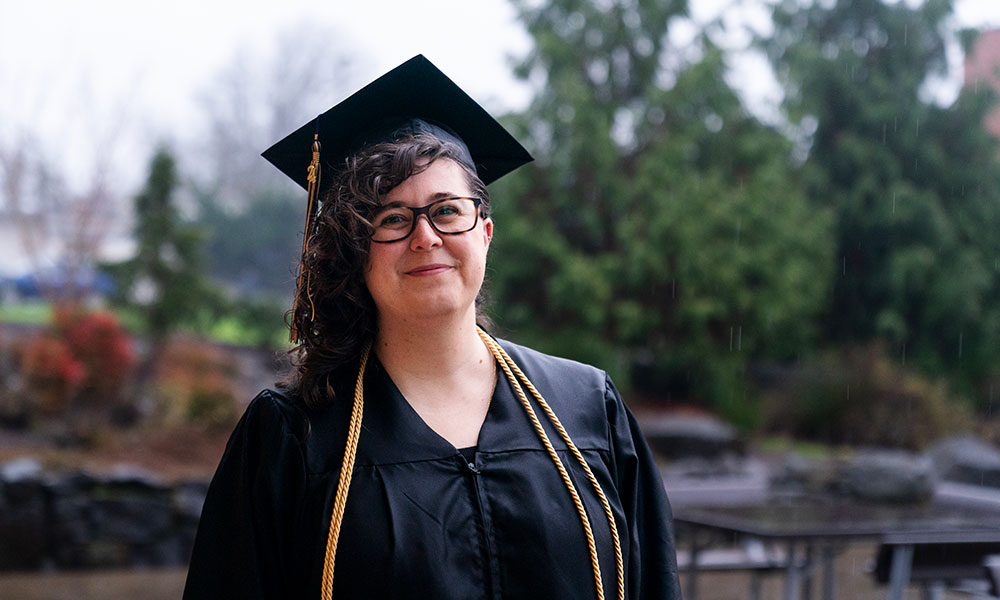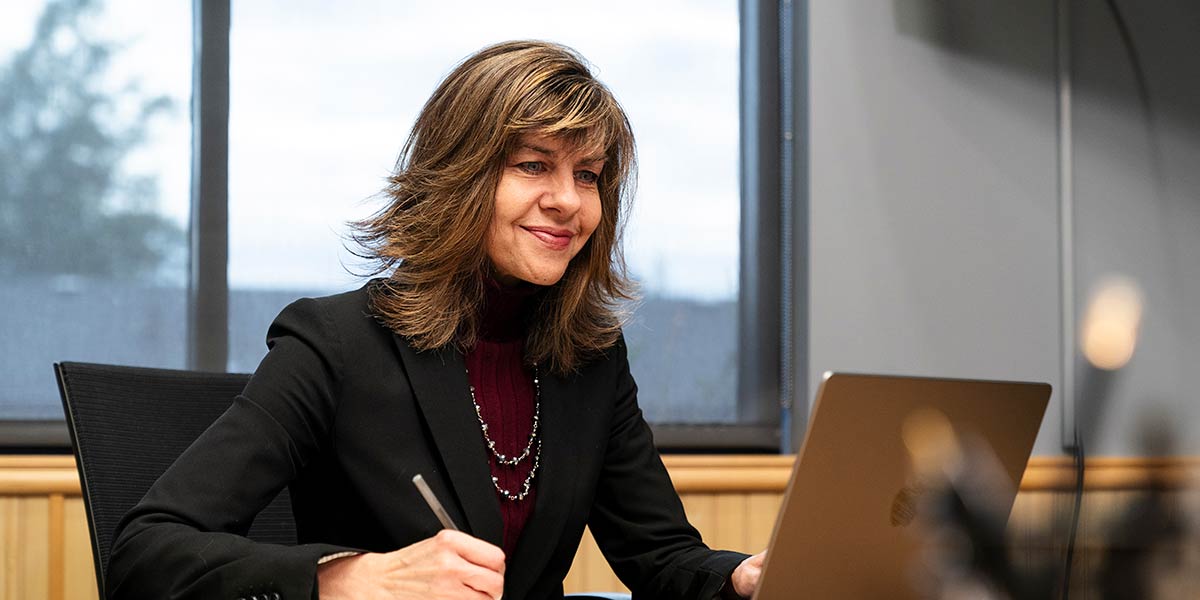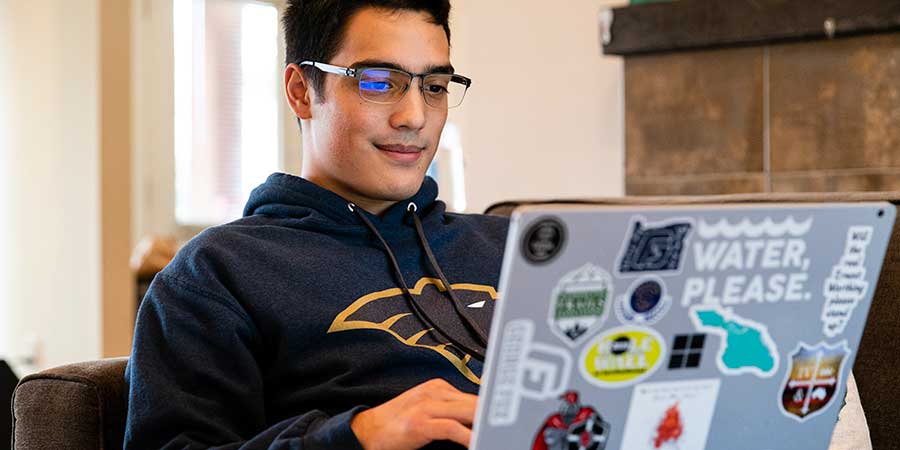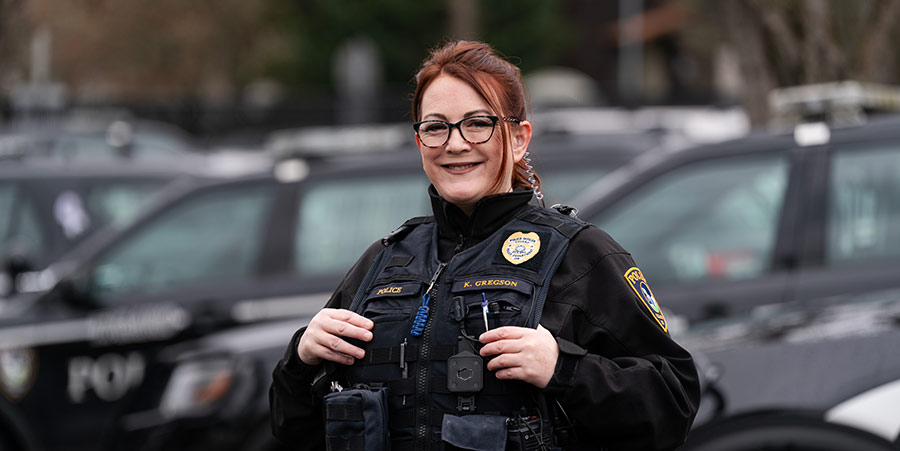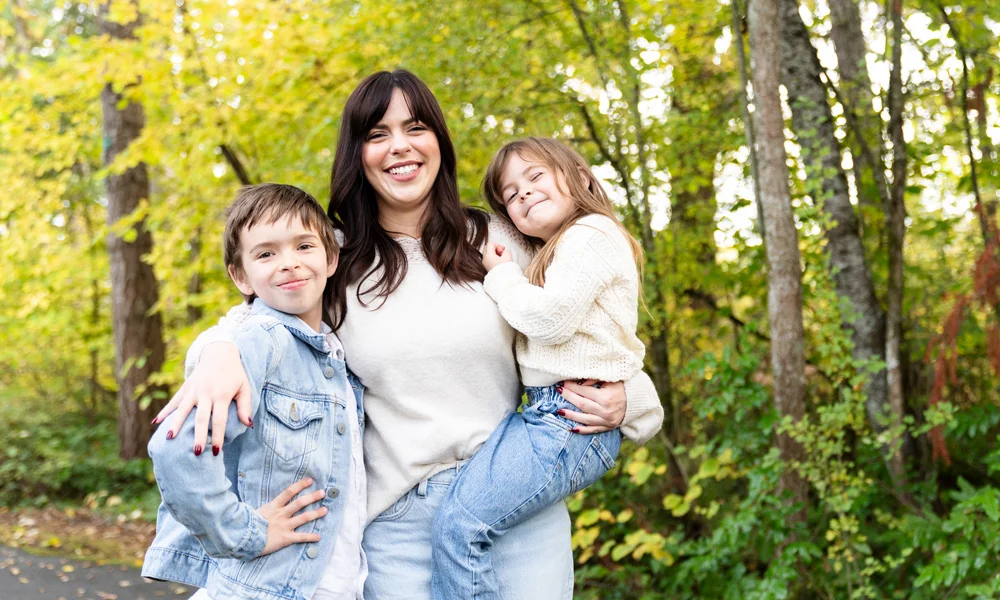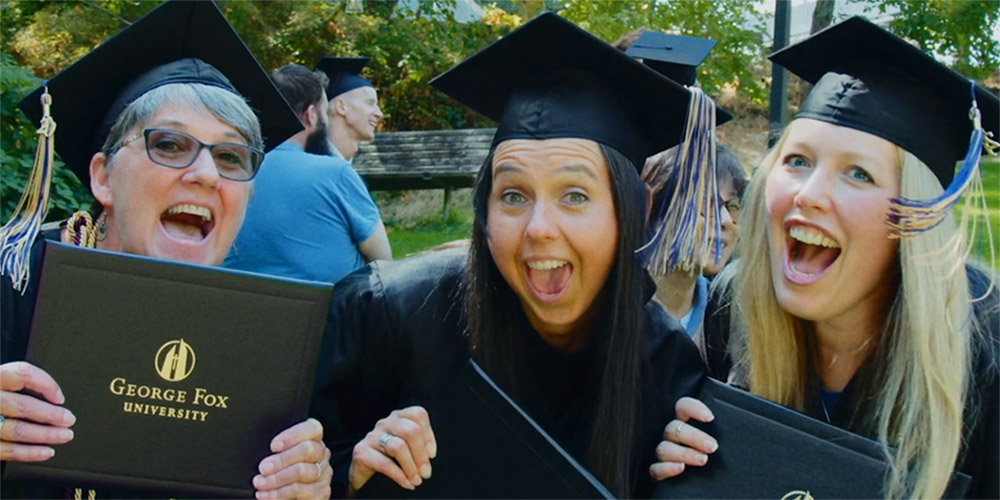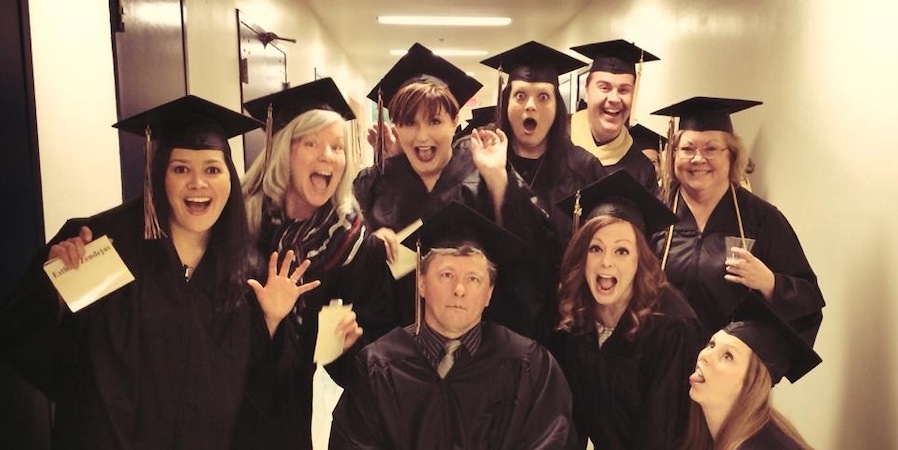
From High School Dropout to Straight-A College Grad
by Brooklyn Chillemi
Ever since running away from home at 16 to escape childhood neglect, Rachael Wandell-White has focused on helping others through child welfare.
Growing up, Wandell-White found her own needs were often overlooked and struggled to understand her family’s choice to be part of what she now describes as a “cult church.”
“There was no validation of my feelings for anything,” she says. After years of dealing with these feelings on her own, she dropped out of high school and ran away from home.
Wandell-White’s troubled childhood led her to choose child welfare as her career, and in 2009 she set a goal to be promoted to a caseworker — someone who helps children escape traumatic circumstances, attend court and answer a judge.
But to be a caseworker she needed a bachelor’s degree, and Wandell-White was a single mother of three teenagers. While the promotion would provide more support for her kids, returning to college didn’t look like an option.
“I am not going to go anywhere unless I get my degree,” she recalls thinking. She began to seek alternative options, and eventually, a friend recommended George Fox’s Accelerated Online Degree program.
“My friend said, ‘You know what, Rachael, I think this will be one of the best things you can ever do,’” Wandell-White recalls. “I asked her what she meant by that, and she said, ‘You know, your childhood stuff — you’ve got to get past that to be able to help people.’”
Wandell-White was intrigued, but still had questions, so she called an admissions counselor.
“I remember crying on the phone that I was a high school dropout, that I'm going through a divorce, and that I really need to get my degree ... And the George Fox admissions counselor asked me, 'Can I pray for you over the phone right now?'”
“I talked to the same admissions counselor a few more times, and she prayed for me every time,” Wandell-White says. “It was so comforting … I felt like George Fox was a support for me at that point in time in my life, and it was pretty significant.”
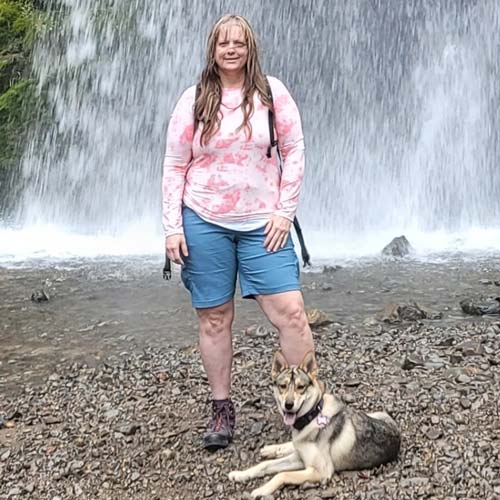
Once Wandell-White enrolled in courses, she felt similar support from her assigned cohort, especially while writing her Prior Learning Credit essays.
“Those papers were hard to write,” Wandell-White says, not only because they covered difficult and emotional parts of her past, but also because when she dropped out of high school, she missed the foundations of writing that many of her peers had. To help fill in the gaps, members of Wandell-White’s cohort would swap essays and revise each other’s work.
“It was a very personal class, having that small of a cohort and being with them for that long,” Wandell-White says.
In addition to helping one another, it was also common for members of her particular cohort to share personal experiences in order to further others’ learning. Wandell-White recalls an Addiction Disorders course project that required interviewing someone who has struggled with addiction, and one of her peers did not know anyone close to her that she could interview.
Wandell-White’s former boyfriend was going through treatment for addiction at the time, so she connected the two for the interview.
“I remember her telling me that it was just hard for her [to find someone], and I offered to share a personal contact,” she says. “She was fascinated to learn what he had gone through and how he’d gotten to where he was.”
Wandell-White appreciated this compassionate curiosity because, when she originally considered George Fox, she had wondered if she would truly belong.
“I didn't know if they would look down on me for my lifestyle, or for different things I've done in my life ... And I never did feel that from people.”
In addition to her supportive peers, Wandell-White remembers one of her professors, Dr. Stephanie Meager, to be a particular example of this. “She just treated you genuinely as a human being,” Wandell-White says. “She didn’t look down on people.”
After learning alongside her cohort for 16 months, Wandell-White graduated with an A in every class — a stark contrast from her younger self.
“I made it through everything to get to where I am, and I feel very strong today,” Wandell-White says.
Now, Wandell-White uses that strength – and her degree – to help others. Not only was she promoted to be a caseworker, but she has joined Search and Rescue and supports the Special Olympics.
In the future, she hopes to be someone who “helps people navigate our broken systems.”
“I want to just give back to everybody and everything," she says.
